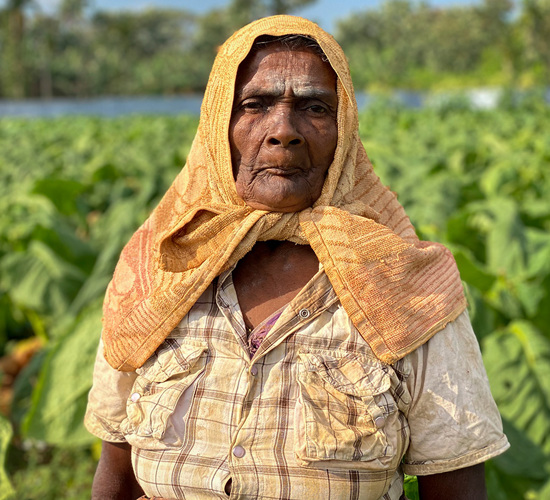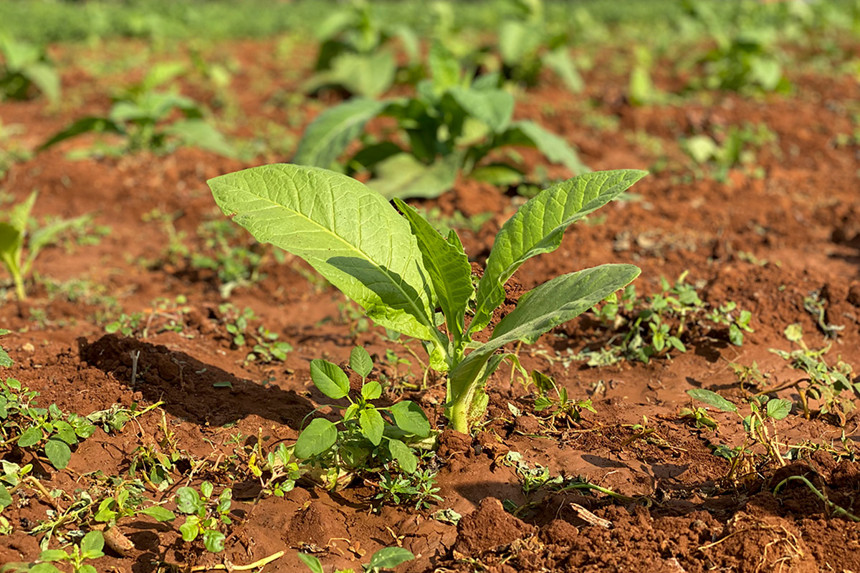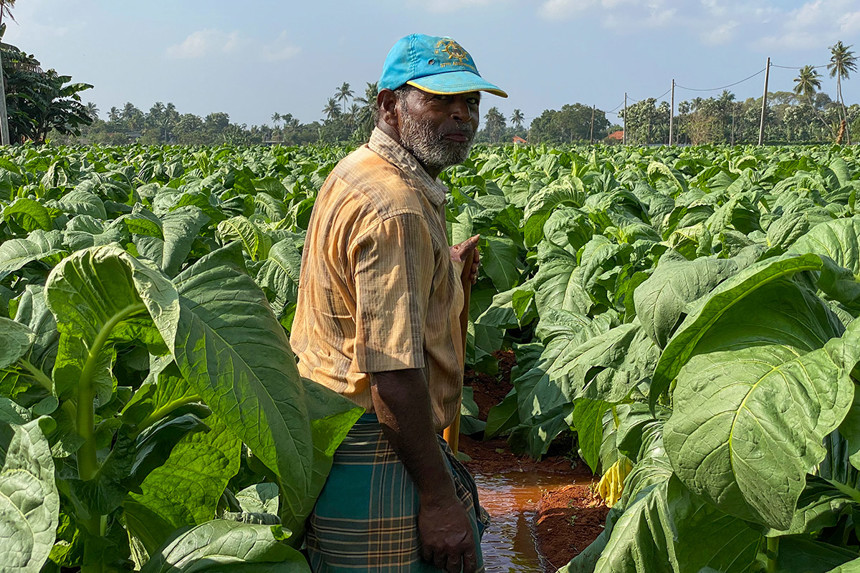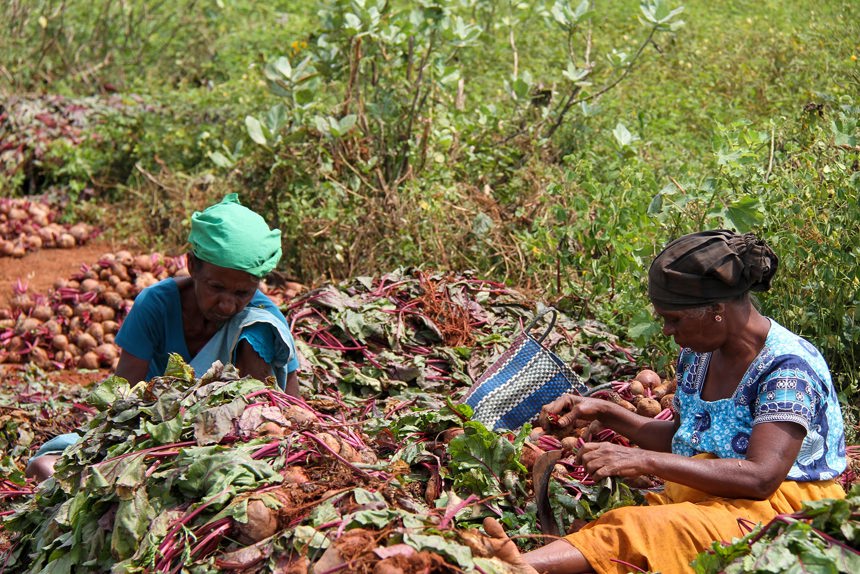Landmines and the explosives left behind by conflict leave food supplies cut off, or land too dangerous to farm. Sometimes, the need to put food on the table becomes so desperate, parents are faced with a bleak choice, risk farming dangerous land or see their family starve.
The extensive mine laying during Sri Lanka’s civil war left vast areas of traditionally rich agricultural land unusable, including Urumpirai minefield near the outskirts of Jaffna. The land is owned by 14 farmers, many of whom have cultivated it since the 1970s. The reliable groundwater supply and good soil means crops such as onion, beetroot, banana and grapes can all be grown, with multiple harvests throughout the year. The land is not only a vital source of income for the farmers, it also yields food supplies for the local region and beyond. Cultivating the crops provides work for agricultural labourers, like Makanthesan Poomani who is 71 years old and has worked the land here all her life.

*A bund is a large defensive earthwork that was built by both sides to defend their position during the war.
In 2004, HALO began work to clear the minefield at Urumpirar, removing 2,300 landmines from the area. Makanthesan Poomani remembers it vividly:
The cleared land was able to be put back to productive use. Muthur Sanderalingham is one of the farmers who owns the land at Urumpirar. After having to leave flee in 1995 at the height of the war, he had returned to find 80 per cent of his land mined. To support his family of six, he rented new land but was only able to afford a plot half the size. But within12 months of returning to Urumpirar, he had restored its productivity. Every year since, he has been able to invest about 20 per cent of his earnings in new crops such as grapes and bananas. Between 2005 and 2014 alone, it is estimated the cleared land generated over $200,500 USD worth of agricultural produce.
Makanthesan Poomani was also able to return to work as a labourer once the land was made safe.



On World Food Day, we recognise the right of all families to have access to a safe and nutritious food supply. Our teams in Sri Lanka and across the globe continue to work to make land safe so minefields can become fields of crops, families can put food on the table and farmers secure their livelihoods.
Thank you to our donors
HALO's mine clearance work in Sri Lanka is funded today by:










